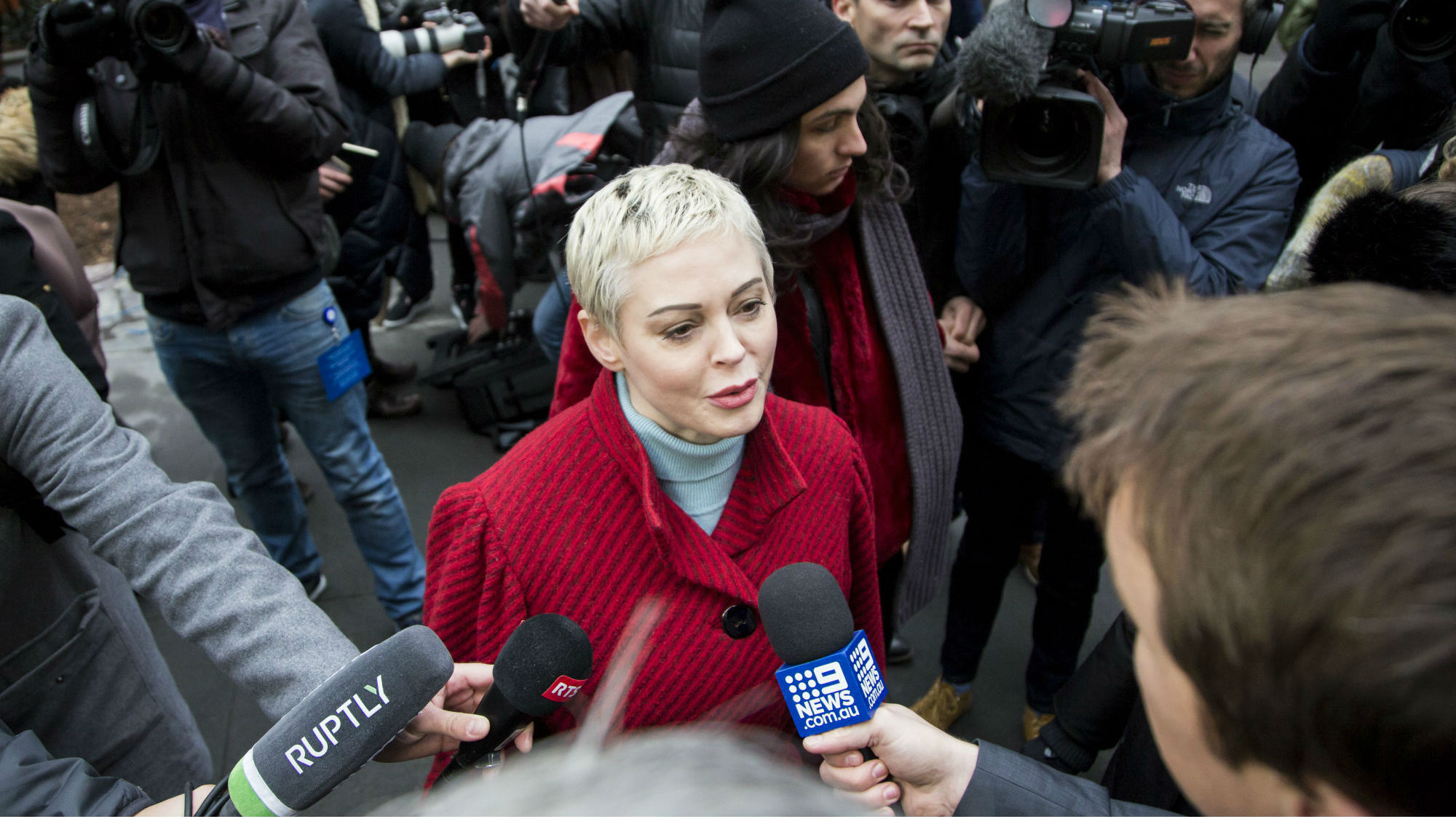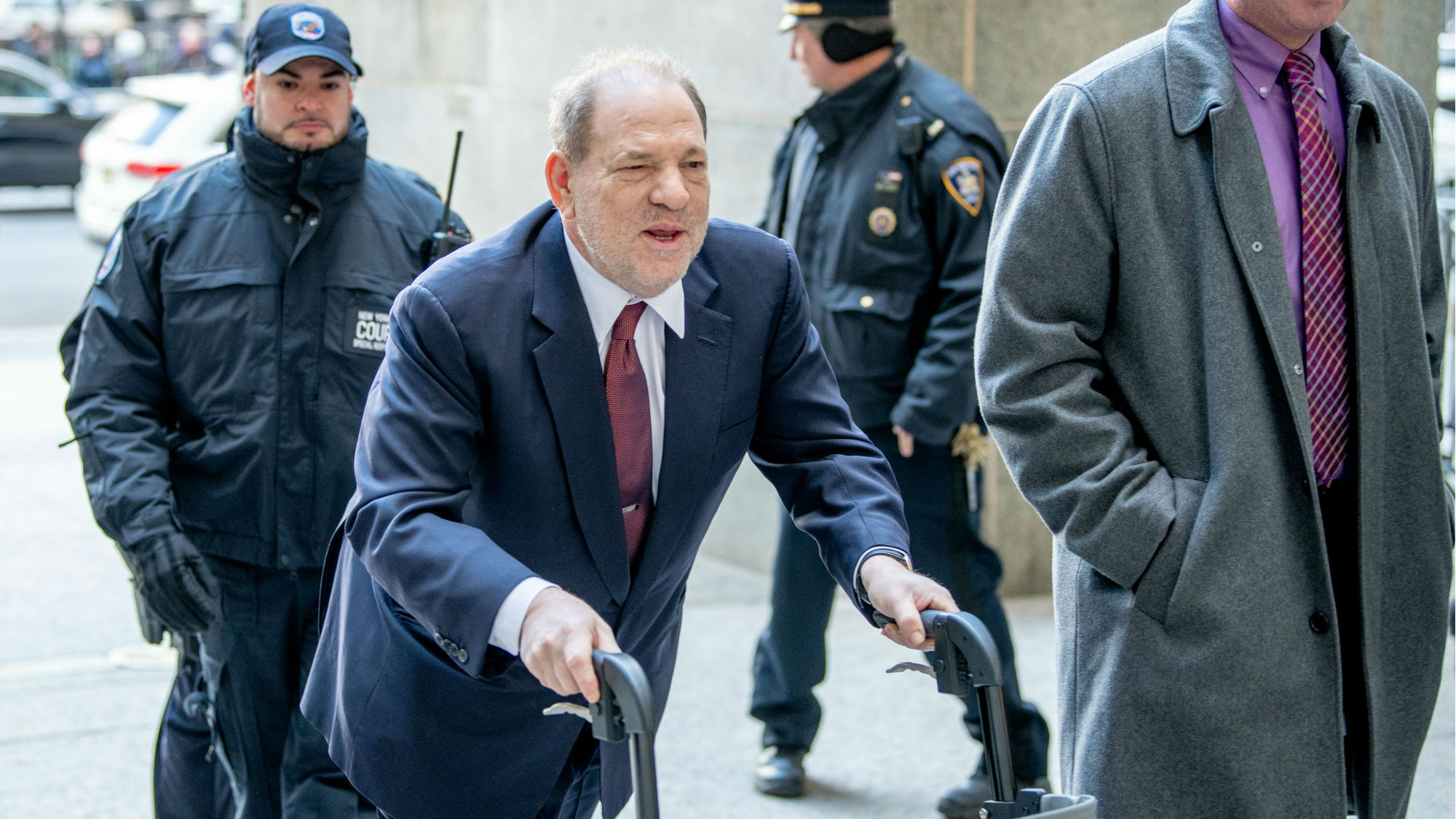'The #MeToo movement needs to stay angry, if we are to deliver real change for women'
As the accused sexual abuser Harvey Weinstein's trial gathers pace, Shivonne Graham, Managing Director of Women for Women International, says his Hollywood ending is not enough for the global #MeToo movement

Celebrity news, beauty, fashion advice, and fascinating features, delivered straight to your inbox!
You are now subscribed
Your newsletter sign-up was successful
As the accused sexual abuser Harvey Weinstein's trial gathers pace, Shivonne Graham, Managing Director of Women for Women International, says his Hollywood ending is not enough for the global #MeToo movement
'We women have historically been trained to be pleasant at all times. We need to stop that and be authentic; justifiable anger is a part of that. Being angry is OK.' These are the words of Rose McGowan, taken from her painfully honest memoir, Brave. I was listening to Rose narrate the audiobook while I was driving. As one of the first whistle-blowers of the #MeToo movement, hearing the actress recount what she has gone through is heart-breaking.
Harvey Weinstein is now facing trial in New York for rape and sexual assault, and it feels like the final act of an Oscar-worthy legal drama. Hollywood has conditioned me to want a fairytale ending for Rose and her fellow survivors. But during my seven years at Women for Women International, I have seen how the law so rarely delivers justice for survivors of rape and sexual violence, and how it more typically ignores, excludes or harms them.
While there will be a symbolic power to watching Weinstein sitting in the dock, this trial won’t deliver the systemic change we desperately need. Certainly not for those women and girls who are most vulnerable to violence and abuse – those living in poverty, those caught up in conflict, those at the margins of society.
Nevertheless, I do think there are some vitally important lessons we can learn from the Weinstein case – lessons that should galvanise us as we enter the next act of the #MeToo movement. Because this story is far from over.
1. Storytelling is powerful
While I had read many reports on the Weinstein scandal, listening to McGowan tell her own story affected me on a different level. She described how throughout her life she had been controlled and silenced by powerful men – during her childhood in a cult, trapped in an abusive relationship, and then as a young actress in Hollywood. Now, she has emphatically reclaimed control of her own narrative.
Hearing Rose’s story makes me think of the many other stories that remain untold. Poverty, conflict and trauma greatly increase women and girls’ vulnerability to abuse – our programme is filled with women who have experienced this first-hand. Some have endured rape at the hands of soldiers or militia, who use sexual violence as a weapon of war. Many more women living in conflict zones or as refugees will be subjected to abuse at the hands of their partners or family members; war and displacement have been shown to fuel rates of domestic violence and forced marriage.
Celebrity news, beauty, fashion advice, and fascinating features, delivered straight to your inbox!
While some women I have met wanted to share their stories – which will stay with me forever – the vast majority do not disclose their ordeals because of the stigma and discrimination associated with sexual violence. Women who have been raped during conflict are frequently rejected by their husbands and ostracised by their communities. They are taught to stay silent, to internalise the pain and turn their anger on themselves.
#MeToo has brought women’s unfiltered pain and anger out into the open. Some women will encounter greater obstacles to speaking up than others. We need to ensure all women can feel the power of taking control of their own story.

2. Laws are not enough
In order to speak out, women need to know that they will be listened to and believed. But police stations, lawyers’ offices and courtrooms are rarely safe, impartial spaces for women to tell their stories. All around the world, our legal systems are failing to punish abusers and shield women and girls from violence.
The Weinstein case is being tried in a comparatively peaceful, prosperous society, where the rule of law is taken for granted. However, a woman in rural northern Nigeria, for example, faces immeasurably greater barriers to seeing her rapist prosecuted, if she takes that first daunting step of coming forward.
As in many conflict-affected countries, national and international laws enshrining gender equality and protecting women’s rights are not effectively enforced. A much stronger, unwritten code of customary law treats women as the property of men. 23% of Nigerian women have experienced physical or sexual violence committed by a husband. But, to quote one of my Nigerian colleagues: 'If a woman goes to the police and tells them her husband raped her, they will say, ‘what do you mean?’ According to the law, a husband cannot rape his wife.'
3. Social change is vital
Major cultural transformation is a complex, gradual process, as generations of women’s rights activists will testify. It is not glamorous; it doesn’t fit the neat story arc of a Hollywood movie. But it is deeply, urgently necessary.
A powerful man facing a jury and being held accountable for his actions sends a decisive message, not just to survivors, but to society at large, about how we should treat sexual violence.
In a similar way, the landmark cases establishing the prosecution of rape as a war crime, a crime against humanity and genocide under international law, have been deeply significant – despite the very small number of convictions. They strike an important blow against a culture of impunity, rooted in gender inequalities and power imbalances, where violence against women is normalised.
But we don’t just absorb lessons about gender and power from our legal institutions. We learn them at home, at school, in the workplace, walking down the street. Cultural change is needed, at every level, to tackle the roots of sexual violence – the harmful gender norms that are part of our social fabric.
Whatever the legal outcome in the Weinstein trial, we must not lose sight of this much bigger picture. The #MeToo movement has unleashed an explosive and devastating collective testimony of women’s pain. Now, we need to look beyond our desire for a familiar, feel-good Hollywood ending, and concentrate on the mammoth task at hand. We must not allow our feelings of outrage to be easily and neatly resolved.
Instead, we should embrace our anger, channel it, and fight on. True justice will be when every woman and girl can live free from violence - and that is a very long way off.
Being angry isn’t just OK – it’s absolutely essential.'
For more information and to see how you can do more for women survivors of war, see womenforwomen.org.uk
Olivia – who rebranded as Liv a few years ago – is a freelance digital writer at Marie Claire UK. She recently swapped guaranteed sunshine and a tax-free salary in Dubai for London’s constant cloud and overpriced public transport. During her time in the Middle East, Olivia worked for international titles including Cosmopolitan, HELLO! and Grazia. She transitioned from celebrity weekly magazine new! in London, where she worked as the publication’s Fitness & Food editor. Unsurprisingly, she likes fitness and food, and also enjoys hoarding beauty products and recycling.